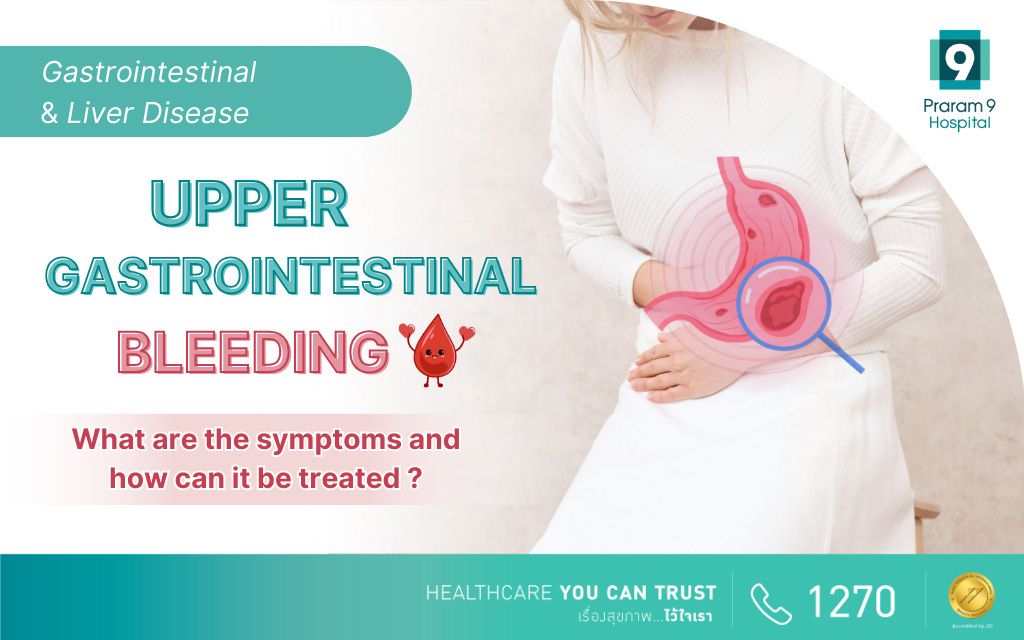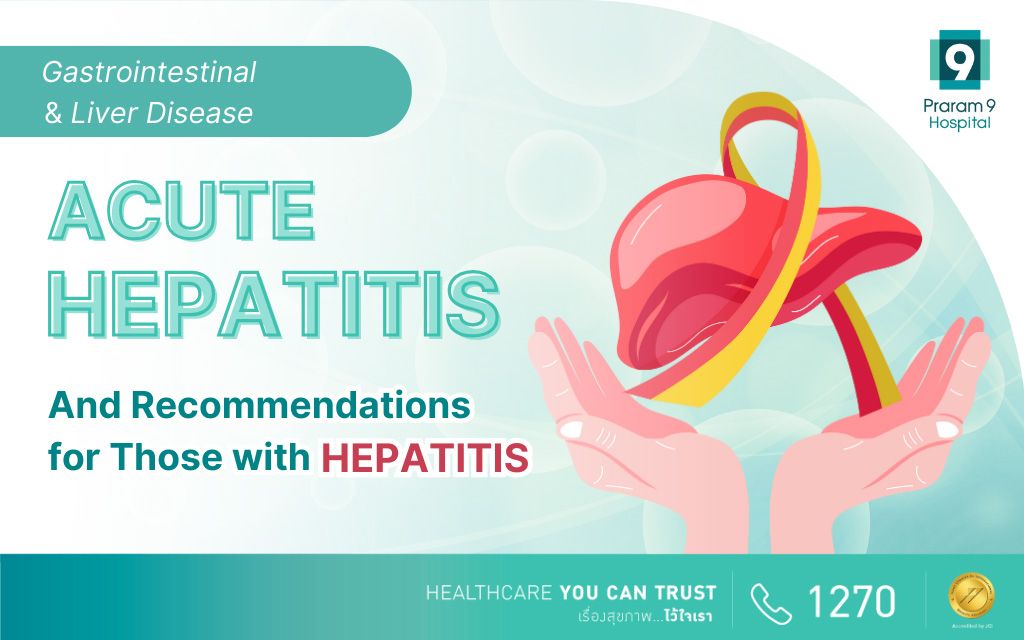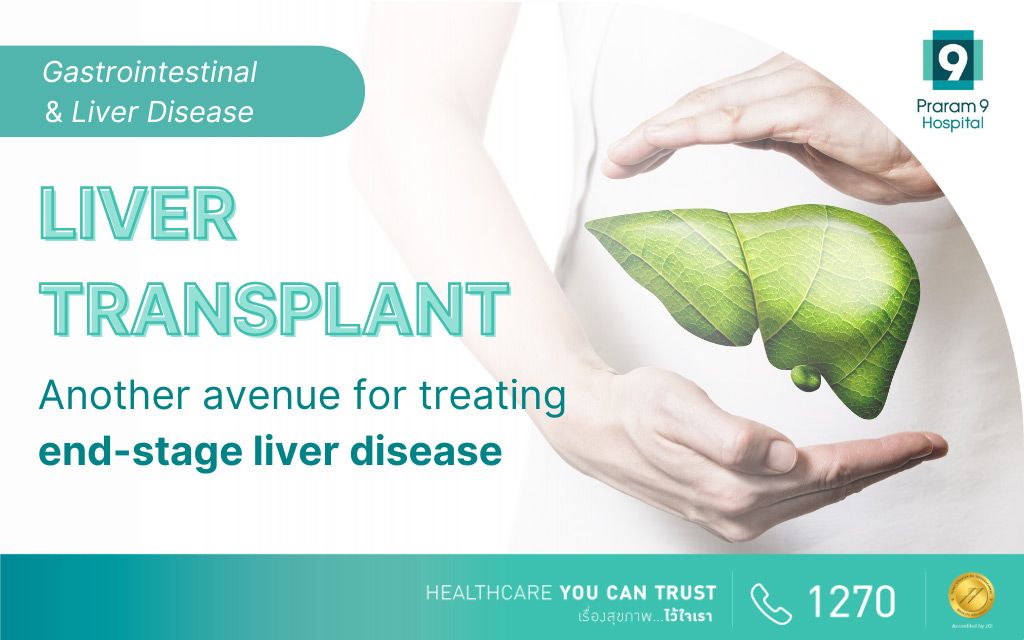Gastrointestinal and Liver Disease Center

Operating Hours
Open daily : 08.00 - 20.00
Page Information
Video consultation with doctors via video call (Telemedicine)

Video Consultation with Praram 9 V
Video Constulation with Doctor at Anytime, Anywhere via PRARAM 9 V
Praram 9 Hospital
Operating Hours
Open daily : 08.00 - 20.00
With the advent of our changing lifestyle, eating habits, in addition to stress, pollution and contaminants, the prevalence of gastrointestinal disease is on the rise.
Praram 9 Hospital’s Gastrointestinal and Liver Disease Center has one of the best expert clinicians in the country, specialising in the diagnosis and treatment of digestive diseases. The center serves as a hub for gastroenterologists and hepatobiliary surgeons to provide the best care for patients, and ensure that holistic and personalized treatment approach is offered to all patients. We treat both common conditions such as dyspepsia, reflux, constipation, diarrhoea and hepatitis, as well as more complex and chronic conditions, such as inflammatory bowel disease, gastrointestinal and liver cancer.
Screening and Prevention
- Physical examination and blood tests
- Stool examination
- Diagnostic and therapeutic endoscopy and colonoscopy
- Virtual colonoscopy
- Investigations such as abdominal ultrasound, CT scan and MRI
- Resection and surgery for gastrointestinal cancer
- Laparoscopic surgery
- Treatment for hepatitis B and C
Location
Gastrointestinal and Liver Disease Center 8th Floor, Building B, Praram 9 Hospital
Operating Hours
Open daily : 08.00 - 20.00
Center Physicians
All Doctors in the Center
Related Health Articles
View All
Copyright © 2024 All Rights Reserved | Praram 9 Hospital

















